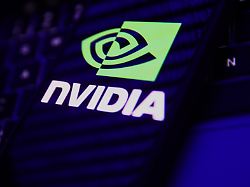Purchased in small batches
China continues to buy special US chips despite export ban
January 15, 2024, 2:42 a.m
Listen to article
This audio version was artificially generated. More info | Send feedback
Actually, China should not be able to buy certain special chips from the US company Nvidia. However, an evaluation shows that military facilities, AI institutes and universities have purchased such semiconductors. It’s just unclear how this was achieved.
According to a media report, China has purchased special chips for artificial intelligence (AI) from US manufacturer Nvidia despite a US export ban. Military facilities, state AI research institutes and universities purchased small batches of the semiconductors last year, according to an analysis of tender documents by the Reuters news agency.
The documents did not reveal how the providers procured their Nvidia chips. Nvidia stated that it adheres to all applicable export regulations and demands the same from its customers. “If we learn that a customer has made an illegal resale to a third party, we will take immediate and appropriate action,” a company spokesperson said. The US Commerce Department declined to comment. None of the buyers named in the filing responded to requests for comment.
The chips sold to China are the A100 and the more powerful H100, whose export to China and Hong Kong was banned in September 2022, as well as the slower A800 and H800, which Nvidia developed explicitly for the Chinese market due to export restrictions. which were also banned last October.
It’s unrealistic to believe that U.S. export restrictions are “watertight” because the chips are small and can be easily smuggled, said Chris Miller, a professor at Tufts University and author of “Chip War: The Fight for the World’s Most Critical Technology”. The main goal is to “throw sand in the gears of China’s AI development” by making it more difficult to build large units of advanced chips that can be used to train AI systems.
